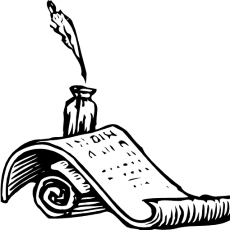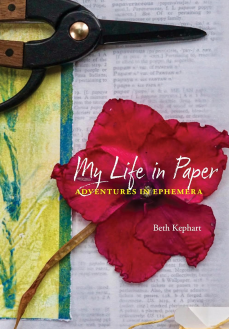How poetry soothes us in troubled times.

I know. It’s very bleak. We hoped the election would mark the beginning of the end of the ugliness, the lies, the misogyny, the bigotry, all those cruel stereotypes. We thought liberty and justice might prevail. Instead, we re-elected a felon who continues to elude justice, and it looks like he’s going to wreak havoc on the world.
I cannot bear to read the news. I can’t even bring myself to watch my trusty stalwart, Anderson Cooper. And I’m certainly not ready to build any bridges. The gulf is just too wide.
I’ve realized instead that I must dig deep if I’m going to get through the next four years. I must go inwards. I need silence, my yoga practice, and long walks with the dogs. I need more poetry in my life.
Poetry is about the heart. It even pulses like the heart. It is about silence, about what isn’t said. I love this little poem by J.R. Solonche from his collection In Short Order. It’s called “The Best Ever Student Definition of Poetry”:
Poetry expresses
what we cannot
say in words.
It removes us from political slogans and stale rhetoric about who we are as a people. I’m reminded of how the poet Grace Cavalieri puts it. Poetry, she says, rinses the language. It rids us of cliché.
After the election, I spent quite a lot of time with the covers pulled over my head. Then I found myself turning to Stephen Mitchell’s translation of Lao Tzu’s Tao Te Ching. The operative word in this classic about achieving balance and perspective seems to be “let.”
In one passage, Lao writes:
Empty your mind of all thoughts,
Let your heart be at peace.
Watch the turmoil of beings,
But contemplate their return.Each separate being in the universe
Returns to the common source.
Returning to the source is serenity.
That kind of serenity feels far off, I know. But maybe by rinsing language with poetry, we can begin the process of binding up the broken-hearted.
I’m searching for poems that will do just this to share on my podcast, “Read Me a Poem.” Many have come in already from listeners around the world. Pieces like “how I got ovah,” the titular poem of Carolyn Rodgers’ 1975 collection, which was a finalist for the National Book Award. It begins:
I can tell you
about them
I have shaken rivers
Out of my eyes
I have waded eyelash deep
Have crossed rivers
Have shaken the water weed out
Of my lungs
Have swam for strength
Pulled by strength
There is also W.B. Yeats, who wrote “A Prayer for My Daughter” during the Irish War of Independence. Another of his stirring poems, “To a Friend Whose Work Has Come to Nothing,” reads in part:
For how can you compete,
Being honor bred, with one
Who were it proved he lies
Were neither shamed in his own
Nor in his neighbours’ eyes;
But our work has not come to nothing. It only feels that way. In fact, we have learned there’s more to be done than we thought. A lot of that begins inwardly. Outwardly, we’re not ready to face the foe. There can be no compromise with bigotry and hatred. Instead, we must use this time to gather strength within ourselves.
The Lebanese American poet Kahlil Gibran wrote about Defeat as a bold companion. “You alone shall climb my steep and rocky soul,” he says, then concludes:
Defeat, my Defeat, my deathless courage,
You and I shall laugh together with the storm,
And together we shall dig graves for all that die in us,
And we shall stand in the sun with a will,
And we shall be dangerous.
Look up these poems, my friends, and use them to steady yourselves over the next period. They tell us what it means to be human. They give us permission to mourn, to rage and despair, but somehow that permission makes it feel possible to continue forward. Another line I’ve always loved is from Samuel Beckett’s novel The Unnamable:
“You must go on. I can’t go on. I’ll go on.”
Funny how failure deepens and purifies us. Those who don’t know failure can become arrogant and self-satisfied. But failure humbles us. It prunes us of arrogance so that we can grow. At times like these, poetry no longer feels like a luxury. Instead, it emerges as a necessity to feed the soul.
Amanda Holmes Duffy is a columnist and poetry editor for the Independent and the voice of “Read Me a Poem,” a podcast of the American Scholar.

.png)